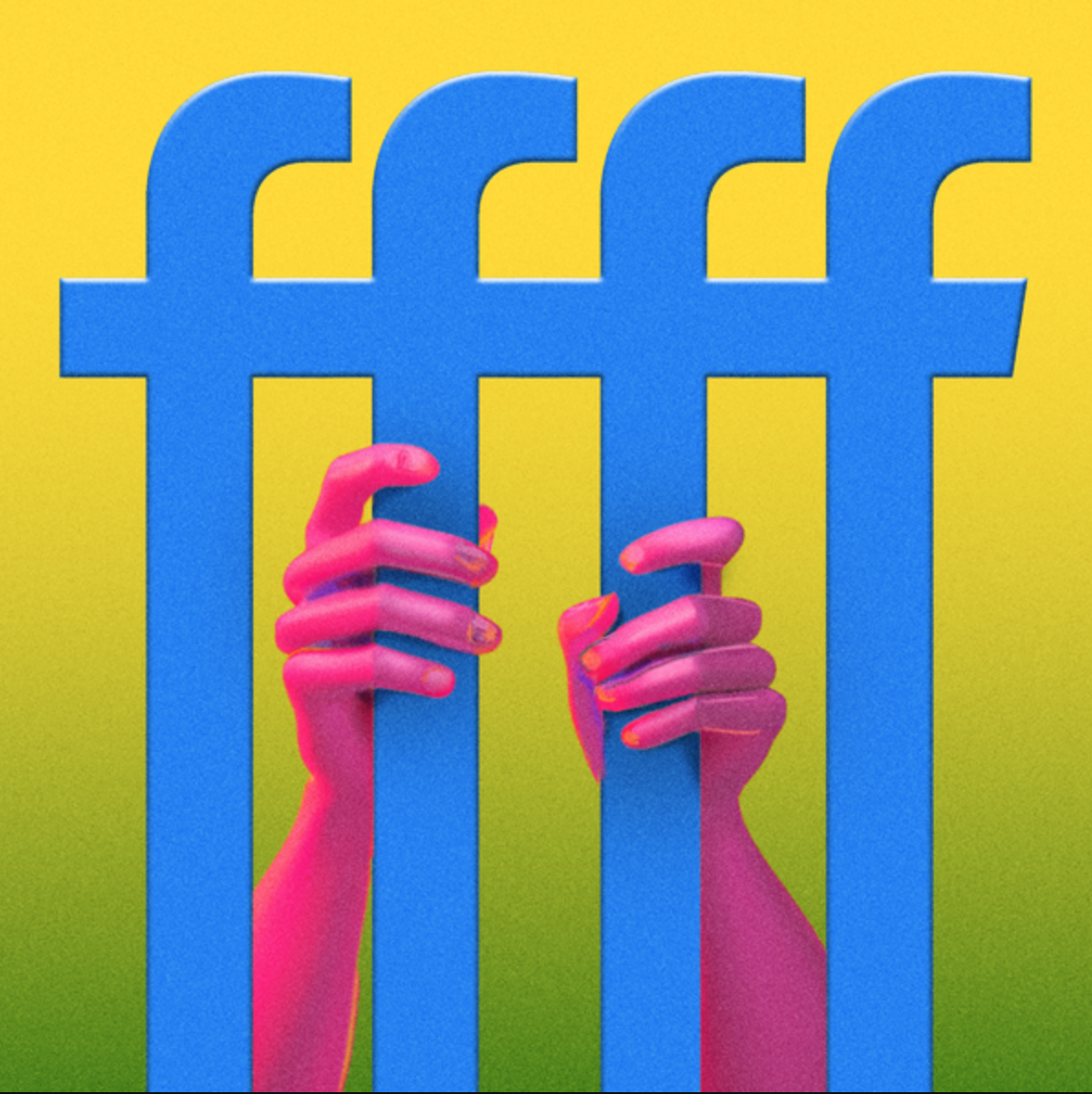
Image Source: NY Times
“For too long, Section 230 has given cover to social media companies as they turn a blind eye to the harmful scams, harassment, and violent extremism that run rampant across their platforms,” said Senator Warner.
There is a new threat to free speech. And like many that came before, it is hiding under the cover of protecting other people.
The SAFE TECH act attempts to amend Section 230, and it doesn't just threaten free speech and creators' ability to monetize content. It also opens the doors to a flood of frivolous lawsuits.
I realize this blog today deviates from my latest blogs, that offer tips on solving disabled Facebook ad accounts but, history is being made and we all need to talk about our freedom of speech when it's threatened.
If you are looking for help finding out why Facebook dropped the ban hammer on you...Click here, to schedule a discovery call.
Table of Contents
ToggleSection 230 Protects More Than Big Tech
Right now, Section 230 protects tech websites—big and small—and their users from civil liability for content created by others. It does not protect against liability for content that a tech entity or user creates, nor does it protect against liability for federal crimes.
Section 230 has two main sections, one which protects against liability for third-party speech allowed (or overlooked) on a website and one which protects against liability for content moderation (that is, blocking certain speech).
The 1st part of Section 230—sometimes referred to as c(1)—says:
"No provider or user of an interactive computer service shall be treated as the publisher or speaker of any information provided by another information content provider."
The 2nd part—c(2), or the "Good Samaritan clause"—says:
Internet platforms and users won't be held liable on account of "any action voluntarily taken in good faith to restrict access to or availability of material that the provider or user considers to be:
• obscene
• lewd
• lascivious
• filthy
• excessively violent
...harassing, or otherwise objectionable, whether or not such material is constitutionally protected."
(Looking for my normal content? Read: Facebook ad account disabled next steps)
The Man Who Created Section 230 Weighs in
Daniel Weitzner, the founding director of the MIT Internet Policy Research Initiative, helped draft Section 230 and get it passed in 1996. Weitzner had this to say:
"Congress had a really clear choice in its mind," he says.
"Was the internet going to be like the broadcast media that were pretty highly regulated?" Or, was it going to be like "...the town square or the printing press?"
Congress, he said, "...chose the town square and the printing press." But, he adds, that approach is now at risk:
"The Supreme court now really is in a moment where it could dramatically limit the diversity of speech that the internet enables."
Right now Meta aka Facebook is already dealing with an AI trade secrets lawsuit recently, and a man named Abrham Meareg in Kenya asked Facebook to take down pics of his dad that had false accusations and death threats. Facebook didn't, and the Meareg's father was murdered outside his home.
In addition to Google fending off charges their algorithm suggested ISIS terrorist videos that resulted in real human harm. So a new law was filed called Justice Against Malicious Algorithms Act of 2021 (aka JAMA).
The cases are Gonzalez v. Google LLC and Twitter, Inc. v. Taamneh.
Clearly there is a lot at stake here. Lives are lost because Facebook and other social media sites are slow to respond when real threats are reported. But at the same time - should these be used as a weapon against everyone's free speech?
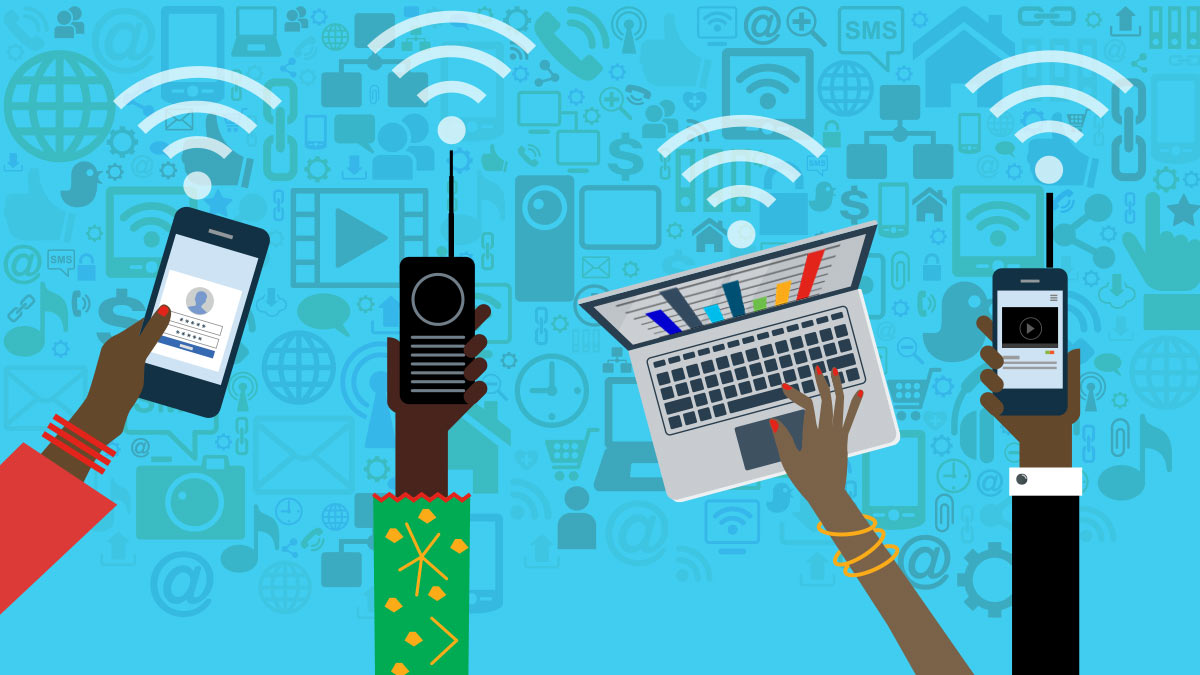
image source: Action Network
The Rights SAFE TECH Act Takes From You
The SAFE TECH Act (almost ironically titled) would change Section 230 c(1) to not apply when "the provider or user has accepted payment to make the speech available or, in whole or in part, created or funded the creation of the speech."
How would this affect the web? It wouldn't just hurt Facebook and Google - this would create a huge issue for smaller websites like WordPress for blogging.
As well as newsletter and podcast distributors like Substack - all would become vulnerable to unrealistic liability standards as would any social media platform that provides a paid tier level (like Twitter Blue).
Do you use Bluehost or GoDaddy? All sorts of web hosting services would now be targeted —creating huge incentives for providers to cut off web hosting access to any person or group even slightly controversial.
As much as many may hate Donald Trump - and he has done many questionable actions worthy of scrutiny - he was elected because of the silent majority in America, conservatively leaning, felt their free speech was being suppressed by ultra liberal pundits and authority figures.
One act of suppression leads to another. It's a feedback loop.
But back to the SAFE Tech Act changes. These modifications of Section 230 "...would also threaten liability on any service that shares its advertising revenue with creators, for instance as YouTube does."
- said law professor and blogger Eugene Volokh from the Ukraine.
This would create incentives for platforms to cut off or severely limit creator monetization schemes, meaning "Creators would thus be less likely to earn money from their works."
Can you imagine being a well established micro influencer and suddenly Instagram refuses to let you publish content because you said something they don't agree with? And then all the monetization you had in place freezes??
In addition, "The section would threaten liability whenever any providers provide grants to support local journalism or other such projects (something like the Google News Initiative)," Volokh said.
"Providers would thus become less likely to directly or indirectly support journalism and other expression."
You get the feeling the SAFE TECH act isn't so safe eh? Wait, there's more.
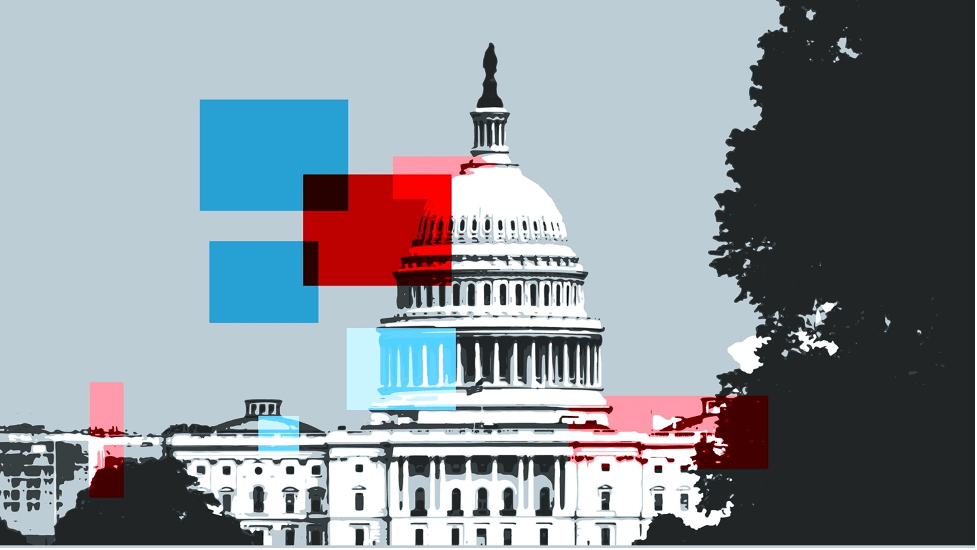
Source: Suffolk University Law School
Free Speech Under Fire 🔥🔥🔥
Want to get to the root of the danger to free speech with SAFE TECH ACT? Mike Masnick of TechDirt had some choice words. Check this out:
"[The SAFE TECH ACT] takes nearly every single idea that people who want there to be less speech online have had, and dumped it all into one bill," Masnick said.
"Everything about the bill is designed in a way that opens it up to abuse by the rich, powerful and privileged. Everything about the bill allows them to file costly lawsuits (or threaten to do so) and pressure websites to pull down all sorts of criticism."
The SAFE TECH Act also says that Section 230 c(1) protection wouldn't apply (regardless of whether payment or funding was involved).
"...to any request for injunctive relief arising from the failure of a provider of an interactive computer service to remove, restrict access to or availability of, or prevent the dissemination of material that is likely to cause irreparable harm."
Injunctive relief means someone who is suing you not for money but to get you to do something—in online speech cases, it's to get that speech removed.
Keep in mind that this provision isn't about lawsuits stemming from illegal content, just content likely to cause "irreparable harm."
And while "irreparable harm" sounds serious, it simply means harm that couldn't be compensated for with money, including harm to someone's reputation.
Like if someone powerful got butthurt about something you've said.
The SAFE TECH Act, "Would not protect users' rights in a way that is substantially better than current law," warned the digital rights advocacy group Electronic Frontier Foundation (EFF) back in 2021.
"And it would, in some cases, harm marginalized users, small companies, and the Internet ecosystem as a whole."
SAFE TECH ACT: You Can’t Diss The Rich Anymore Online
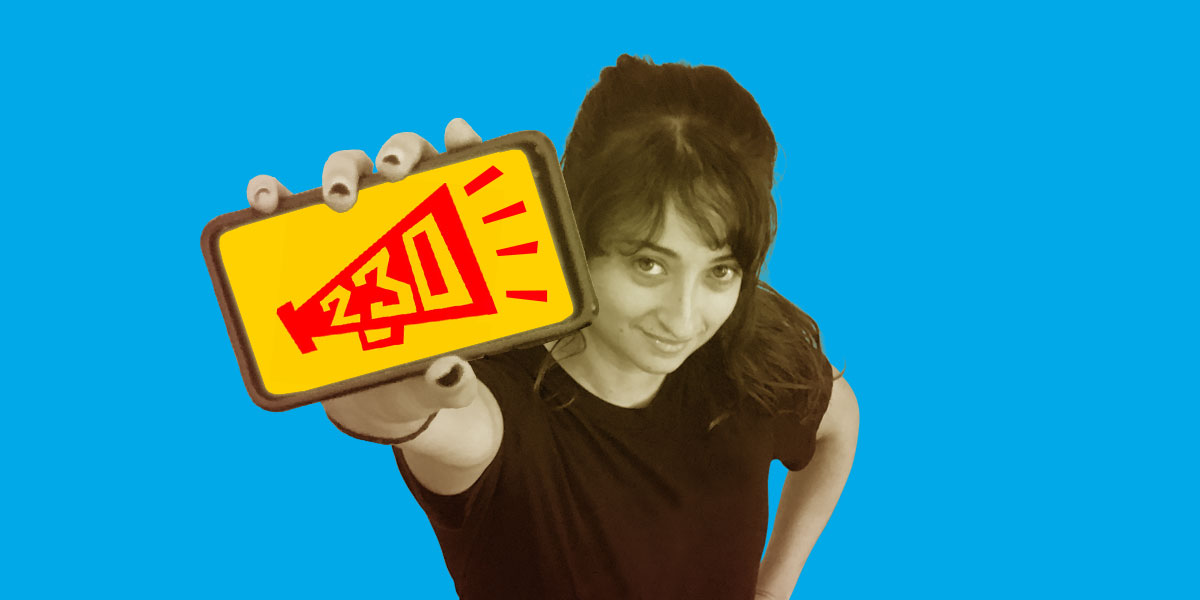
Source: EFF
The SAFE TECH ACT bill will carve out a bunch of exceptions to Section 230 protection, including for:
"...any action alleging discrimination on the basis of any protected class, or conduct that has the effect or consequence of discriminating on the basis of any protected class, under any Federal or State law."
As Masnick wrote about a similar provision in the 2021 version of SAFE TECH,
"...While it may sound good to say this can't be used to block civil rights cases, in actual practice a bunch of recent 'civil rights' cases have involved white supremacists, out-and-out misogynists, and other terrible people claiming that their civil rights were violated by being kicked off of platforms. Enabling such lawsuits seems incredibly short sighted."
And in some states, political affiliation is a protected class, meaning Section 230 wouldn't apply to cases where someone claims their content was blocked or restricted because of their politics. Again: floodgates.
And that's still not all.
The SAFE TECH Act would also amend Section 230 to state that it:
"...shall be construed to prevent, impair, or limit any action brought under Federal or State antitrust law,"
"...any civil action for wrongful death," any action brought under international human rights law, or any "action alleging stalking, cyberstalking, harassment, cyberharassment, or intimidation based, in whole or in part, on sex (including sexual orientation and gender identity), race, color, religion, ancestry, national origin, or physical or mental disability."
If you look at that and think, well, tech companies shouldn't be allowed to violate laws with impunity—well, no, and they aren't.
If they create illegal content, they can already be held liable. If they are guilty of federal crimes, they can already be charged just like anyone else.
What the SAFE TECH Act would do is open up internet companies to civil lawsuits from individuals and governments if third parties use their services in the course of causing certain harms.
Even if many lawsuits against tech companies over user speech would not stand up to the First Amendment, the absence of Section 230 protection would make these suits more labor -and resource-intensive to fight—
This is upping the likelihood that platforms may decide to crack down on limiting speech rather than defend themselves in more lawsuits.
TLDR: if this Act passes anyone who is richer than you can sue you into silence if you say ANYTHING they disagree with online.
The SAFE TECH Act is a dangerous bill that would have far-reaching consequences for content creators, activists, people exposing police violence, whistleblowers, citizen journalists, and basically anyone who uses the internet.
Not to mention how it would burden our courts with questionable lawsuits and make life miserable for tech companies large and small.
[Parts of this article sourced from Reason.com]
Over the past 100 years free speech has been instrumental in establishing and protecting civil liberties.
Whether it's women meeting at Seneca Falls and establishing the right to vote, or Bob Dylan in the 60s calling out systemic injustice, oppression to Martin Luther King's speeches fighting for equal rights and against racism...free speech isn't just about talking.
It's about organizing. Creating unity and moving forward to build transformations towards equality. I agree that something must be done so that social media algorithms aren't boosting hatred just to get clicks and engagement.
But taking away everyone's free speech online, cloaked in the SAFE TECH Act as a protection measure?
Is that not just Big Brother telling us we shouldn't have any rights because we don't know any better, being the ignorant plebeians we are?
Haven't we heard this argument before when the Patriot Act was passed to legalize domestic spying and wiretapping American citizens?
Taking away rights is never the answer. I told this to the Texas Board of Education when they tried to take out the history of slavery from Texas textbooks and call it "involuntary relocation" instead.
I asked them, "How is less information going to make our children more informed?"
They didn't have an answer. And the proposal didn't pass. Thank god.
What do you think? Should we trade free speech for censorship? What is a good alternative between Section 230 and the SAFE TECH Act? Comment below and let me know your thoughts.
If you are returning to my blog because you googled "disabled facebook ad account" I help advertisers on Facebook stay compliant.
Keep reading for these answers and more:
New Solution to Facebook Ad Policy Violations
After years of working at Facebook, I understand exactly what ad copy in your funnel is triggering the automations and how to get compliant.
Get solid answers directly from the source instead guessing, googling, and playing roulette. Schedule a call with me and I can easily tell you proven reasons why the automations flag you and how to become compliant.
You'll be swapping out walking in a minefield of ad flags, to have a sure path to having your Facebook ad accounts protected from being disabled.
My clients have included the social media marketing agencies of Tony Robbins, Harv Eker, and Dean Graziosi. I'm featured on the Queen of Facebook Mari Smith's Marketing Essentials Course.
Save energy and money - how much is it costing you to not know why Facebook is shutting you down? Talk today.

If you want to skip the line before this offer ends, immediately secure an expert-level Facebook consulting call from someone at Facebook. Book a call with me now!
If you're ok with waiting a bit longer, and entering the waitlist to see if you're eligible - Schedule a call or contact me via email.
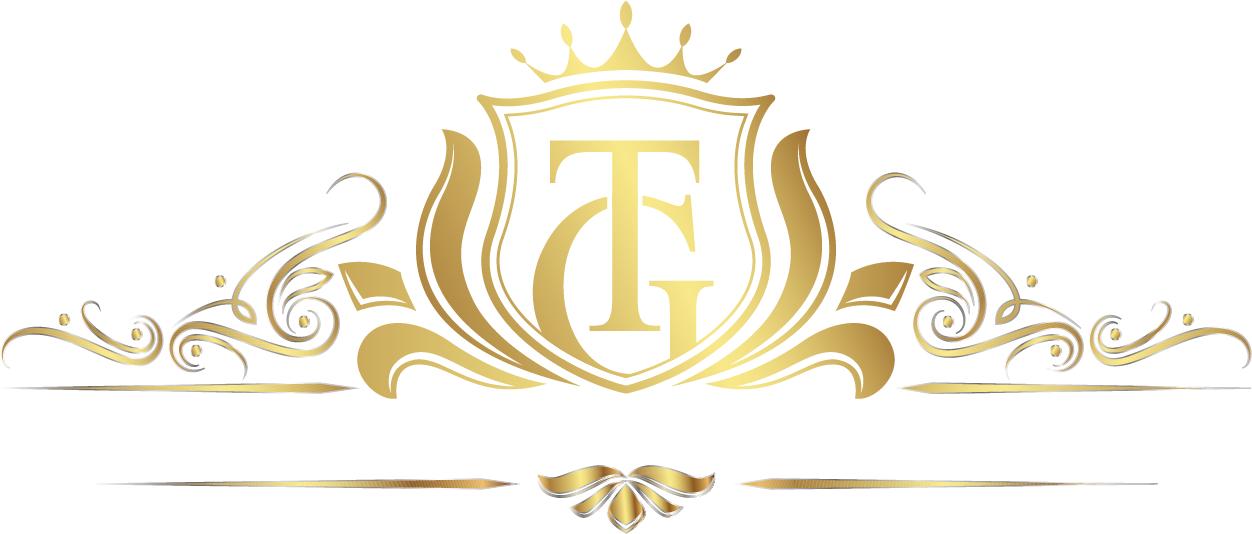




Leave a Reply